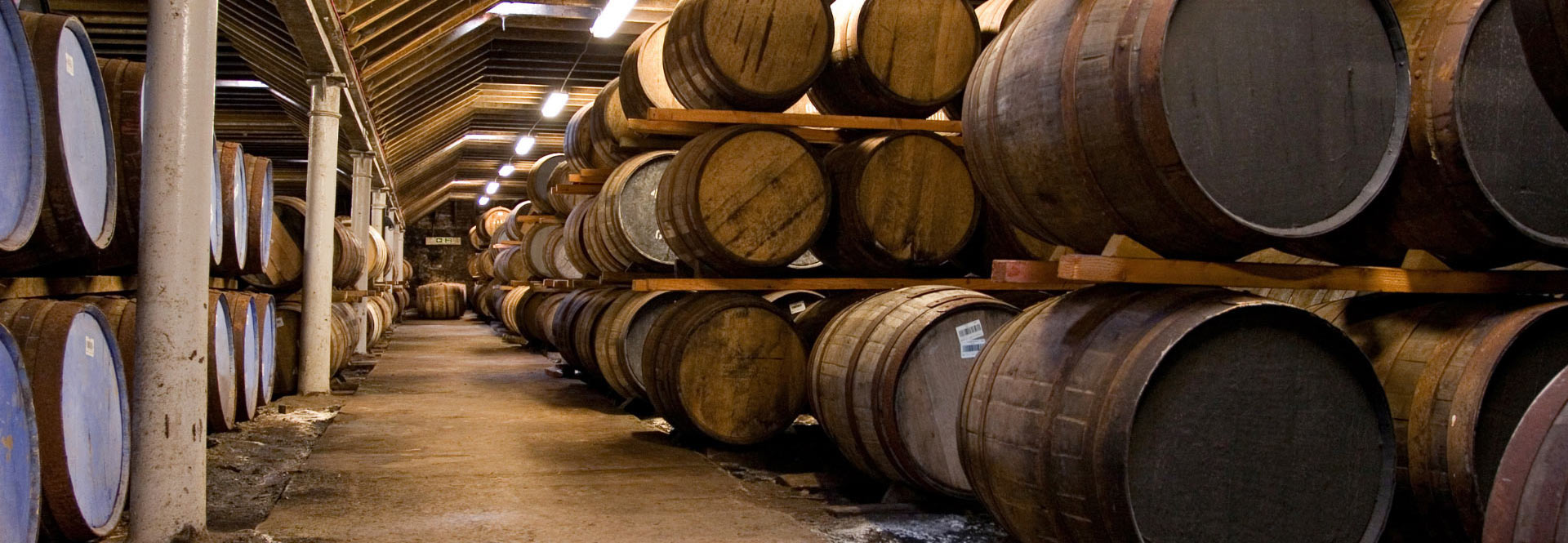
Why Whisky Cask Names Matter
The value of your whisky cask investment is directly related to the spirit name of the whisky inside that cask, within the industry this is referred to as the cask’s ‘naming rights’. A cask without full naming rights will not hold the same value as a cask with full naming rights.
One of the reasons that distilleries release their spirit under a different name is to protect their brand equity - the value premium a company with a recognisable name generates compared to a generic equivalent - such as BMW vs a Munich Motor Company.
Distilleries still need to trade casks with each other, mainly for their blended whiskies. Once a distillery has sold their casks, they lose control over the liquid. To protect their brand they can use several methods, all of which involve changing the original name.
Teaspoon Malts
By adding a small amount of whisky from another distillery the liquid ceases to be a single malt, becoming a blended malt and requiring a new name. The volume could be as little as a teaspoon-full, hence the term - teaspooning. For example, it is extremely rare to see a cask of Balvenie with full naming rights on the market, as the distillery usually teaspoon their whisky with liquid from one of their other Dufftown distilleries and release the casks under the name Burnside.
Spirit (Trade) Names – Restricted Naming Rights
Many distilleries will release their whiskies under a pseudonym or trade name. This whisky may be very similar, or even identical, to the usual whisky produced at the distillery, however the casks will be labelled with a different name and will not hold the same value as a cask with full naming rights. A common example of this is Kirkcowan spirit produced at the Bladnoch Distillery. A cask of Kirkcowan will have a significantly lower value than a cask of Bladnoch that has full naming rights.
‘Secret’ Casks – No Naming Rights
A cask may be sold with no naming rights at all, only referred to by the region in which it was produced. An example of this would be a Secret Speyside or a Secret Islay cask. These casks are usually sold for immediate bottling and should be carefully considered for whisky investment.
Different Spirit Styles
Distilleries may produce different spirit styles at the same distillery and give them different names. An example of this would be - Ledaig and Tobermory - both produced at Tobermory Distillery. Ledaig is the name used for their peated spirit and Tobermory is the name of the unpeated spirit.
FAQ
“This cask was filled with whisky distilled at the Royal Brackla distillery, surely even though the spirit name is Cawdor Springs, the value is the same?”
The reason casks do not have the same value if they have restricted naming rights comes back to brand equity. The naming rights dictate how the bottles will be sold once that cask has been bottled. According to SWA rules, the independent bottler’s brand and the spirit name must be more prevalent than the distillery name on the bottle.
It is important to understand this distinction as independent bottlers are the end user for every single cask on the market, so for private investors they are the most reliable exit for investments.
Cask Trade will always represent the real name of the liquid in a cask, whether that is the official name or the alternative/teaspoon name.
Below we have provided a glossary of the most popular teaspoon/alternatively named malts currently on the market. We hope that you find this information useful and that it will help you to make a more informed decision when purchasing casks of whisky as an investment.
Allt Mhor – Aultmore
Aldunie – Teaspooned Kininvie or a Dufftown Blended Malt (Blended Malt)
Allt Dour - Arran
Ardlair – Ardmore (unpeated)
Auchinderrom – Peated Glenglassaugh
Ballygrant – Bunnahahabhain (Unpeated)
Blairfindy – Glenfarclas
Blue Hill – Craigellachie
Burnside – Teaspooned Balvenie (Blended Malt)
Cawdor Springs – Royal Brackla.
Craigmills – Glenglassaugh
Croftengea – Loch Lomond (Peated)
Dalrymple – Ailsa Bay
Duich – Tamdhu
Dunnach – Bladnoch (Peated)
Fortrie – Macduff
Glenisla – Glen Keith
Glenshiel – Glenrothes
Glen Mosset – Benromach
Inchfad – Loch Lomond (Heavily Peated)
Kintail – Macallan
Kildalton – Ardbeg
Kirkcowan – Bladnoch
Kirkinner – Bladnoch (Peated)
Ledaig – Tobermory (Peated)
Margadale – Bunnahahbain
Lochindaal – Bruichladdich (Peated)
Ochil – Tullibardine
Placemill – Glendronach
Port Charlotte – Bruichladdich (Peated)
Rare Ayrshire or Ayrshire – Ladyburn ( Distillery closed in 1975 so indeed very rare!)
Ruadh Mhor / Maor – Glenturret (Peated)
Staoisha – Peated Bunnahabhain
Strathdearn – Tomatin
Strathenry – InchDairnie
Stronachie – Benrinnes
Teithmill – Deanston.
Wardhead – Glenfiddich with a teaspoon of Balvenie (Blended Malt)
Westport – Glenmorangie with a teaspoon of Glen Moray (Blended Malt)
Williamson – Laphroaig
Whitlaw – Highland Park.
Interested in whisky investment? For more news from the Masters, sign up to our newsletter by ticking the box at the bottom of the registration form. Follow us on Instagram, TikTok, Facebook, LinkedIn and YouTube.